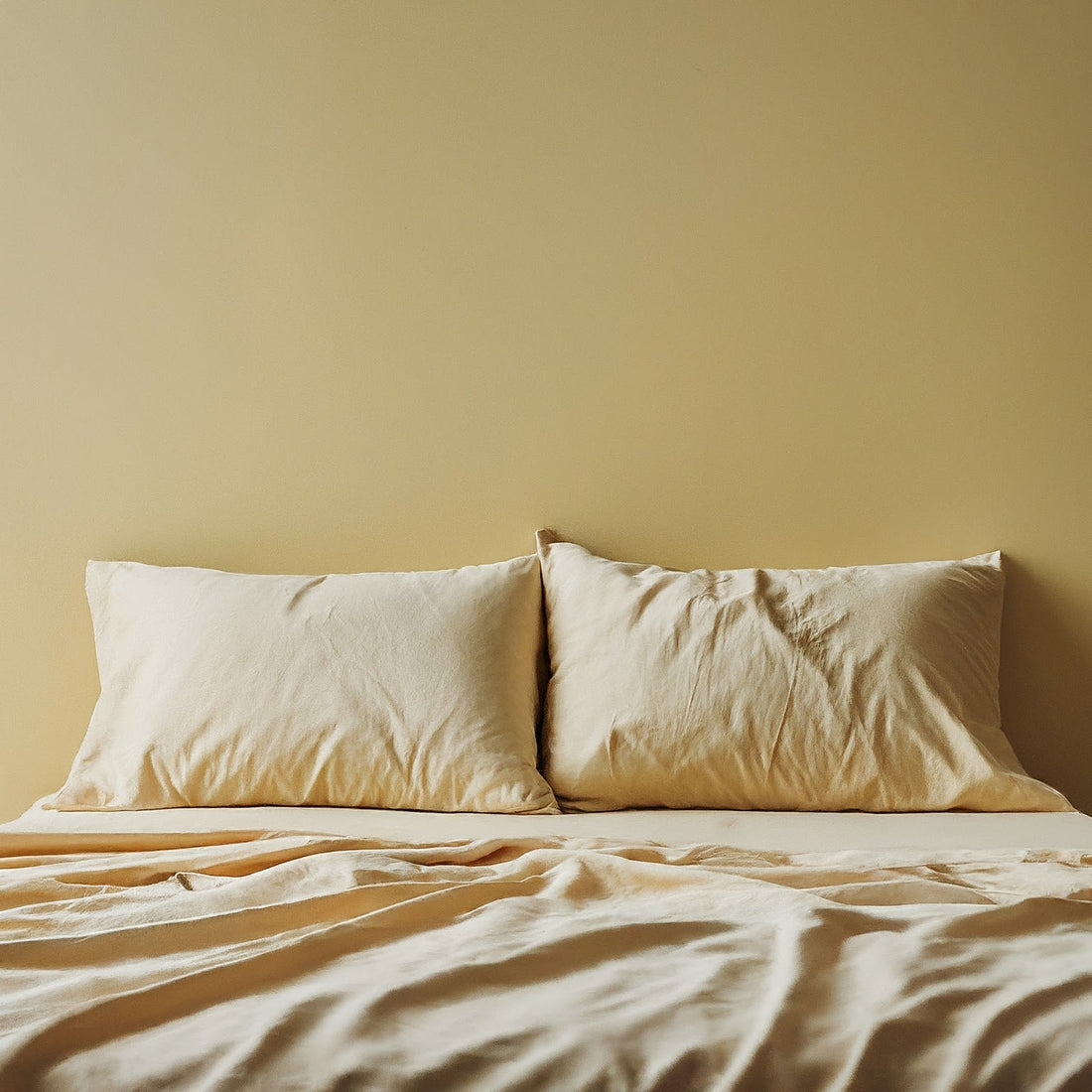For many of you, that blissful feeling of wrinkled cotton sheets is not easy. Its a common frustration: you wash your sheets, make your bed, and within what seems like minutes, those pesky wrinkles appear. But why does this happen? Why do cotton bed sheets, in particular, seem to be wrinkle magnets?
In this blog, we're going to dive deep into the world of cotton sheets and their propensity for wrinkling. We'll explore the science behind why cotton wrinkles so easily, uncover some of the mistakes you might be making that exacerbate the problem, and offer some simple, practical tips to help you keep your sheets smoother for longer.
This guide will help you understand and combat wrinkled sheets. So, let's smooth things out and get to the bottom of this wrinkly mystery!
What Causes Cotton Bed Sheets to Get Wrinkles?
To understand why cotton sheets wrinkle so easily, we need to take a closer look at the nature of cotton itself. Cotton is a natural fiber derived from the cotton plant. At a microscopic level, cotton fibers are made up of long, twisted chains of cellulose molecules. These chains are arranged in a way that allows them to be flexible and absorbent – qualities that make cotton so comfortable and breathable.
However, this same molecular structure is also what makes cotton prone to wrinkling. Here's why:
- Hydrogen Bonds: When cotton fibers get wet, the water molecules form temporary hydrogen bonds with the cellulose molecules. As the fabric dries, these new bonds can cause the fibers to stay in whatever position they were in during the drying process – often resulting in wrinkles.
- Lack of Elasticity: Unlike synthetic fibers, cotton doesn't have much natural elasticity. This means that once it's bent or creased, it doesn't easily spring back into shape.
- Heat and Pressure: When cotton is exposed to heat and pressure (like in a dryer or under the weight of your body in bed), it can cause the fibers to set in a new position, creating wrinkles.
- Moisture and Body Heat: As you sleep, your body releases heat and moisture. This can cause the cotton fibers to relax and reshape, leading to wrinkles by morning.
- Fiber Length: The length of the cotton fibers used in your sheets also plays a role. Shorter fibers tend to wrinkle more easily than longer ones, which is why high-quality, long-staple cotton sheets often wrinkle less.
Also read our blogs on how to remove wrinkles from cotton bed sheets without ironing.
What You're Doing Wrong?
Now that we understand why cotton is prone to wrinkling, let's look at some common mistakes that might be making the situation worse:
- Overloading the Washer or Dryer: When you cram too many sheets into your washing machine or dryer, they don't have enough space to move freely. This can lead to deep-set wrinkles that are hard to remove.
- Using Too Much Detergent: Excess detergent can leave a residue on your sheets, making them stiffer and more prone to creasing.
- Over-drying: Leaving sheets in the dryer for too long can set in wrinkles. The heat causes the fibers to contract and hold their shape, even after cooling.
- Leaving Sheets in the Dryer: Allowing your sheets to sit in a crumpled heap in the dryer after the cycle ends is a surefire way to create wrinkles.
- Not Making Your Bed: Leaving your sheets rumpled all day allows wrinkles to set in more deeply.
Also read our blog on why do modern bed rooms use plain solid coloured bed sheets.
Simple Daily Tips to Remove Wrinkles from cotton bed sheets
Now for the good news – there are several easy ways to reduce wrinkles in your cotton sheets:
- Don't Overstuff: Wash and dry your sheets in smaller loads to give them room to move.
- Use the Right Water Temperature: Wash in cool or warm water, not hot, as extreme temperatures can cause more wrinkling.
- Shake It Out: Before putting sheets in the dryer, give them a good shake to help prevent wrinkles.
- Remove Promptly: Take sheets out of the dryer while they're still slightly damp and either hang them to finish drying or make the bed immediately.
- Make Your Bed Daily: Smooth out your sheets each morning to prevent wrinkles from setting in throughout the day.
- Invest in Quality: Higher quality, long-staple cotton sheets tend to wrinkle less than their cheaper counterparts.
- Use a Spray: A light misting with a wrinkle-release spray (store-bought or homemade) can help smooth out minor wrinkles.
- Proper Storage: When not in use, store your sheets folded neatly in a cool, dry place to prevent creasing.
Overall
It's true that cotton's natural properties make it prone to wrinkling, understanding the science behind this tendency and implementing some simple habits can go a long way in keeping your sheets smoother. Remember, some wrinkling is natural and even adds to the cozy, lived-in feel of your bed. The goal isn't perfection, but rather a comfortable, inviting sleep space.
By treating your cotton sheets with care – from the way you wash and dry them to how you make your bed each day – you can significantly reduce wrinkling and extend the life of your bedding. These small changes in your routine can make a big difference in the look and feel of your bed.
Ultimately, the joy of cotton sheets lies in their breathability, softness, and natural feel against your skin. With these tips in mind, you can minimise wrinkles while maximizing comfort, ensuring that every night's sleep is as smooth and restful as possible. Sweet dreams!
FAQs
1. Can ironing damage my cotton sheets?
When done correctly, ironing shouldn't damage cotton sheets. Use a medium-high heat setting and iron while the sheets are still slightly damp for best results.
2. How often should I wash my sheets to minimize wrinkling?
Washing your sheets once a week is ideal. This prevents buildup of body oils and sweat, which can make wrinkles more stubborn over time.
3. Is it better to air dry or machine dry cotton sheets to prevent wrinkles?
Air drying can help reduce wrinkles, especially if you hang the sheets taut. However, if using a dryer, removing the sheets while slightly damp and smoothing them out can also be effective.
4. Can using starch help keep my sheets wrinkle-free?
While starch can help sheets appear crisper, it's not recommended for regular use as it can build up on the fabric over time and potentially irritate sensitive skin.
Written by Shivangi Singh





